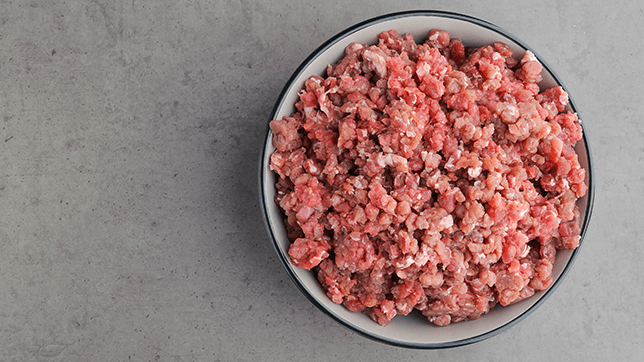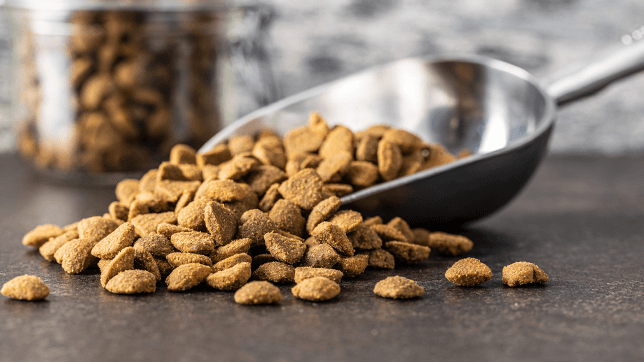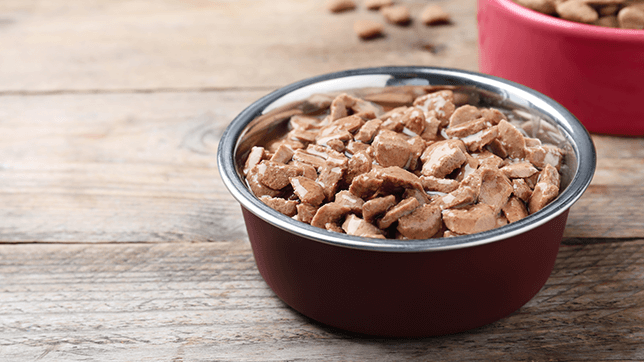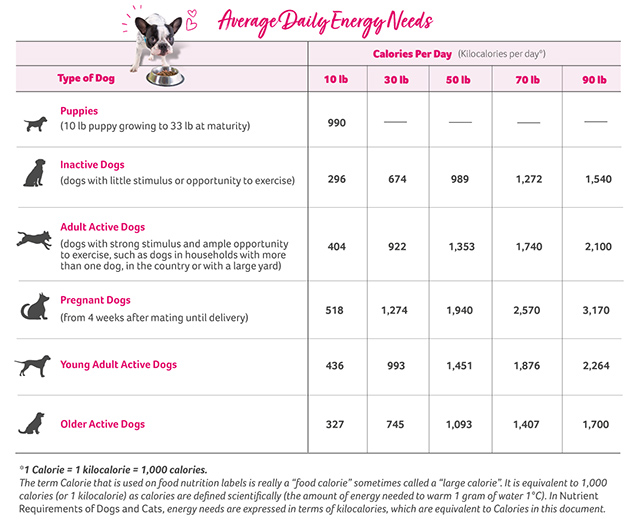20th January 2022
Dog food – what’s right for your pooch?
There are a number of potential diets for dogs and with so many different brands lining the shelves of the shops and with the rise of online subscriptions, it can be hard to know which one is best for your four-legged friend.
Choosing the right food that’s suitable for your dog’s age and needs is one of the first, and one of the most important decisions you will have to make. The right diet is an important part of supporting their health but there’s an overwhelming amount of choice, so how do you know what’s right for your pooch?
We take a look at some of the most popular diets to help lead you in the right direction.
Raw food diet
A raw food diet is one that does not contain cooked items and does not come in a kibble or canned form. They’re composed mainly of raw meat, bones and offal but companies usually offer complete mixes, making it easier for owners to make sure their dog receives the recommended nutrients that they need.

Pros
- You know exactly what you’re feeding your dog
- A raw diet provides clarity on ingredients that can otherwise be confusing
- Can be a more natural option
- Feeding them the same as their canine ancestors
- Comes with potential health benefits
- Regular feeders report benefits to their dog’s coat, skin, teeth and digestive system
Cons
- Can be quite costly
- A raw food diet might not be affordable for everyone
- Can be complex
- If you don’t buy a complete raw food diet, providing the proper balance can be hard
- Take a lot of space
- You will need to make space in a freezer to store your dog’s food safely
- Not easy to travel with
- You will need to find suitable alternatives when travelling with your dog
If you’re considering feeding your dog a raw food diet, you can use the Atwater Raw Food Method to calculate just how many calories your pooch may need.
What do the experts say?
Have you considered switching to a raw dog food diet? We’ve got the inside scoop on all things raw food from specialist provider Naturaw.
Dry food diet
Dry food is probably one of the most convenient and affordable diets out there, but that doesn’t necessarily make it the best for your pooch. Reading the ingredients listed on the bag will help make sure whatever you decide to feed your dog has the right combination of nutrients needed for their age, health and size.

Pros
- Simple feeding
- Most kibble dog food labels provide feeding guidelines based on a dog’s weight, which makes it really easy to ensure your pet receives the correct portion size
- A cleaner option
- If your dog is a messy eater, dry food can easily be swept up or hoovered
- Perfect for travelling
- Kibble is really easy to store, transport or take on the go making it the perfect diet for explorers
- Can be used as treats
- It’s easy to use some of your dog’s portion as training treats, without having to worry that you might be exceeding their daily guidelines
Cons
- Can be confusing
- Broad, umbrella terms like 'cereals' and 'meat and animal derivatives' listed on the packaging could refer to a wide range of ingredients of varying quality which makes it almost impossible to know what your dog is eating
- No real smell
- Dry food has no real smell which can make it unappealing to some pets
- Low moisture content
- A dry food diet may lead to dehydration in your dog due to the low moisture content but this can be avoided by adding water to the kibble and ensuring your pooch has access to fresh water at all times
If you would like a greater understanding of how many calories your dog might need, you can use the National Research Council’s 4-step calorie calculator.
What do the experts say?
Want to know more about what dry food has to offer? Akela tell us all we need to know.
Wet food diet
Wet food is one of the most popular diets, providing a similar convenience to its dry alternatives. With so many different flavours and brands, there are plenty of options to choose from to cater for all types of dogs, from fussy pups to older pooches.

Pros
- More palatable for dogs
- Some dogs, especially young pups, can be quite fussy when it comes to what they eat. Because of the consistency and smell of wet dog food (even if we don’t like it), you might notice that even the pickiest eaters will devour their dinner
- A hydrating choice
- A typical can of wet dog food contains more water than some other types of food, making it a hydrating choice
- More protein
- Wet dog food typically contains more meat protein and fat than dry recipes as they’re less processed
Cons
- Can spoil easily
- While wet dog food has a longer shelf life unopened, if left out it can spoil quite quickly so it’s important to pop any leftovers in the fridge immediately
- A messy choice
- Wet dog food can get quite messy, especially if you have a messy eater
- Can be expensive
- A wet dog food diet can cost more than its dry alternatives depending on your dog’s needs
Insect-based diet
With our pets now eating 20% of the world's meat, some owners are looking for a more sustainable alternative for their dogs without having to compromise on taste and nutritional value. An insect-based diet might be perfect for those looking to make a difference.
Pros
- Environmentally friendly
- It is estimated that food made with insects uses just 2% of the land and 4% of the water per kilogram of protein than meat or fish farming
- Just as nutritional as meat
- The nutritional value of insects does isn’t any different to that of other meat sources such as chicken, beef, pork and fish
- Can help with weight control
- Insect-protein food can be low in fat and calories which helps your dog maintain a healthy weight
Cons
- Can be expensive
- As the demand for insect-protein based dog food isn’t as high as other diets, there simply aren’t that many insect farms in operation which means it can be expensive to buy. This can change as the supply and demand grows
- The data available is limited
- Due to the limited amount of research around insect-based diets for dogs, there are no real reliable trends on the effects of insect consumption over time
Vegan or vegetarian diet
With around 14% of adults (7.2 million) in the UK following a meat-free diet, it’s no surprise that some of us might be interested in feeding our dogs something similar. With the right planning and care, it’s believed dogs can be vegan as long as their nutritional requirements are met.
Bramble, a Border Collie, enjoyed a diet of rice, lentils and vegetables lived to just over 25 years old and is known as one of the world's oldest dogs.
Pros
- Dog poos will smell less
- Your dog might poo more because of the fibre in their diet but they’ll smell nicer
- Benefits the environment
- By switching your dog to a vegan diet you could help reduce the depletion of natural resources caused by some livestock farming practices
- Can help dogs lose weight
- Usually crafted using lean and easily digestible ingredients, vegan dog food can be a great choice for dogs who have trouble maintaining a proper weight
Cons
- It’s a learning curve
- You will have to learn a lot about the vegan diet to ensure your dog’s diet includes: Vitamin E, B12 and other minerals, such as iron calcium, iodine and a high intake of protein
- Can take more time
- Depending on how you decide to feed your dog, the preparation time can vary massively compared to other diets
- Key nutrients may be missed
- Our dogs don’t tend to chew their food as we do. Their usual gulping means that some vegetables (like chickpeas or lentils) will remain whole and key nutrients cannot be absorbed
Where can I go for advice?
We know it can be confusing to choose from all the available foods and different diets but the vets at Joii can help provide some expert advice on what to feed your dog.

Looking for more dog advice?
Find the information you need as we support you through every step of your journey with your canine companion.
Need dog insurance?
Dog insurance can help cover the cost of veterinary treatment if your dog gets injured or falls ill.
